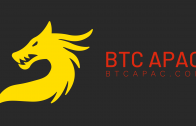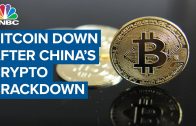Bitcoin Hot In Singapore; China Crypto Mining Bans Widen | The Daily Forkast
Welcome to The Daily Forkast, June 10th, 2021. I’m Angie Lau. Let’s get you up to speed from Asia to the world. Could Singapore follow hot on the heels of El Salvador by adopting Bitcoin as legal tender? Well, that’s the buzz on social media. But there’s also some substantive opinion behind the idea of an associate professor of humanities, Andrew Bailey at Yale-NUS, who’s watching closely as well. “Singapore has a long history of exploiting disruptive innovation to get an edge over regional rivals. Now, we’re already regional leaders in fintech and Bitcoin, to my mind, falls within all those categories. It’s disruptive, it’s innovative, and it’s fintech. And this is important. Bitcoin has for over a decade rewarded early adopters.” Raul Paul, CEO of Real Vision, has reportedly said that Singapore’s sovereign wealth fund, Temasek, has been acquiring Bitcoin for three years already. And for many residents, using e-wallets like GrabPay and transferring funds with PayNow are incredibly popular. Some now say the natural next step for the city-state could be to experiment with Bitcoin as a medium of exchange. Bailey says the next hurdle is likely a political one if Singapore’s leaders can even be comfortable with technology that they can’t unilaterally control. Meanwhile, over in China, the crypto mining clampdown continues. In the latest move, mining has been banned in a popular mining hub in Xinjiang, as well as in Qinhai province. In Xinjiang, local media reports that the government of Changji prefecture ordered all crypto mining companies in the Zhundong area to shut down activities. And in Qinghai, the provincial government has instructed local governments to shut down mining in their areas. It comes after mining was banned in Inner Mongolia at the end of April, and the pressure doesn’t stop there. It appears that certain crypto mining keywords in China are being barred from many of the most popular internet services in the mainland. Traders and investors who try searching for either the Chinese or English names of Binance, Huobi or OKEx are currently being met with zero results on Baidu, Sogo, Zhihu and Weibo. Over in Hong Kong, Kikitrade has announced that British hedge fund billionaire Alan Howard is its latest backer. His US$4 million injection brings the capital raise for the cryptocurrency investment platform’s Asia-Pacific expansion up to US$12 million. “You will look at, for example, a lot of countries, the penetration rate is single digit in terms of percentage of people that owns crypto. Hong Kong is less than 5%. So that means almost 60% of people trade stock. So there is a really large, I would say, ample room for growth.” More than two-thirds of Kikitrade users are millennials or Generation Z. In a positive day for markets, Bitcoin climb just over 8%, sitting at a fraction under US$37,000 at 4:00 pm Hong Kong time at the end of the Asian trading day. And in the top ten for cryptocurrencies, Polkadot has gained 10.5%, and Uniswap is just up under 4%. And finally today, over a thousand people have been arrested across China on crypto-related money laundering charges, according to the Ministry of Public Securities’ Wechat account. The crackdown has also resulted in one hundred and seventy criminal organizations being busted. “Operation Card Breaking” as it has been dubbed by authorities, is now into its fifth round. When it started in October of 2020, it focused on the use of fake SIM cards and compromised bank accounts to launder money via the traditional banking system. But now that surveillance has been tightened in these areas, now authorities alleged that criminals have shifted to using cryptocurrencies instead. And that’s The Daily Forkast. I’m Angie Lau. Until next time. #crypto #blockchain #cryptocurrency #china #cryptomining #xinjiang #qinghai #singapore #bitcoin #hongkong #weibo #socialmedia #huobi #elsalvador #binance















